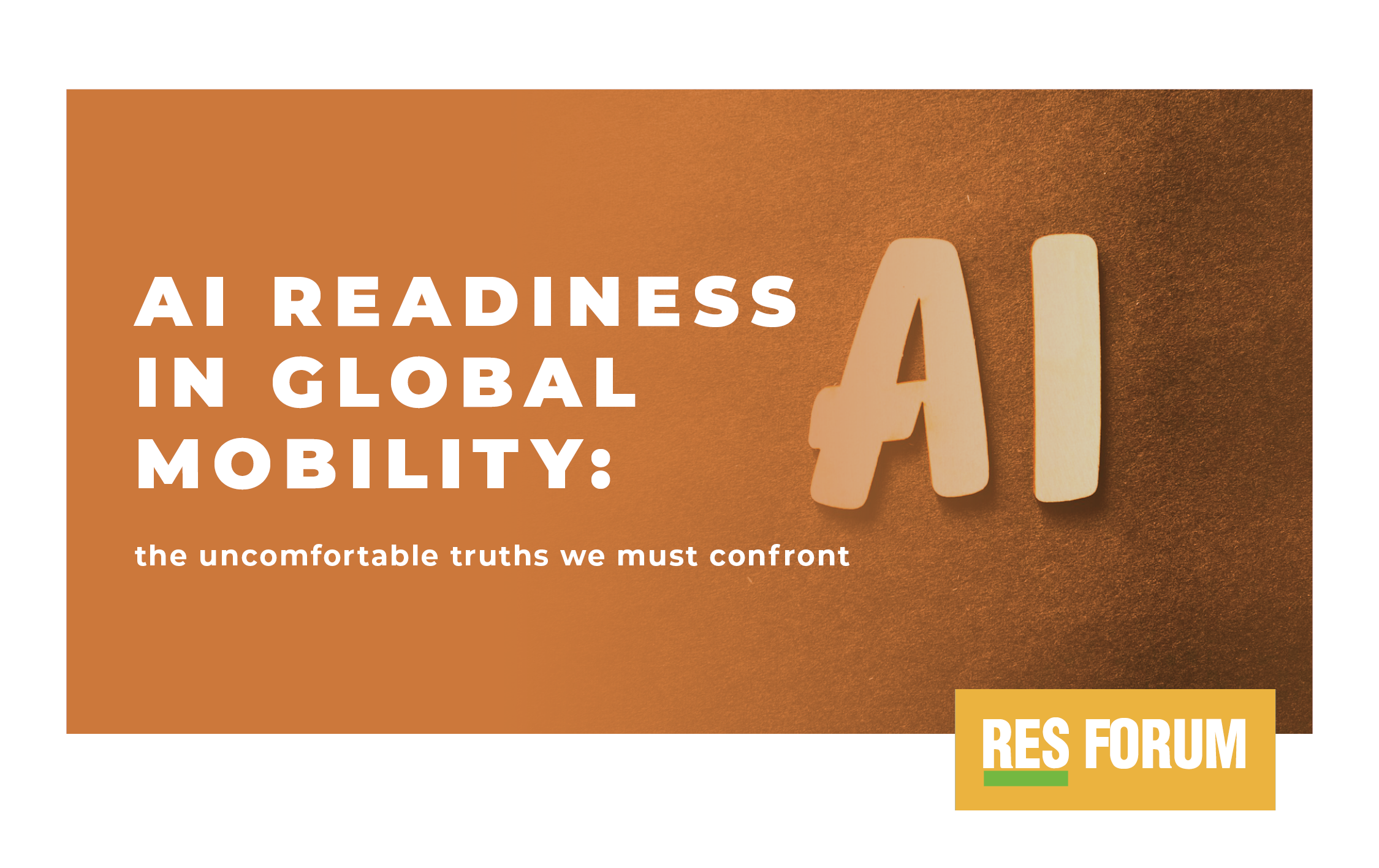Written by a European Head of Global Mobility in the technology sector
In my previous piece, I posited that Generative AI (GenAI) is not merely a technological trend but a fundamental revolution poised to reshape global mobility. I explored GenAI’s potential to automate, enhance employee experience, and empower strategic decision-making.
However, acknowledging a revolution is one thing; being prepared to navigate its upheaval is entirely another.
In this piece, I investigate an uncomfortable truth that I believe we, as industry professionals, must now confront - our collective AI readiness. In my opinion, the current state of adoption suggests a complacency that could render large swathes of our function, and indeed the broader relocation industry, obsolete.
The question, as I see it, is no longer if GenAI will transform global mobility, but when, and more critically, are we ready? The current state of GenAI adoption within global mobility is uneven and often insufficient. While some organizations are piloting solutions and integrating GenAI into specific workflows, a significant portion of the industry remains either hesitant, overwhelmed, or complacent. I don’t believe this is a technology trend that we can afford to observe from the sidelines. In fact, I'd go so far as to say that our relevance, our efficiency, and ultimately, our strategic value within the enterprise depend on our proactive engagement.
The AI Readiness Matrix: an honest self-assessment
To truly gauge our preparedness, we need to move beyond aspirations and conduct an honest self-assessment using an AI Readiness Matrix. This is not merely a tick box exercise; I believe it is a critical diagnostic tool. A framework that assesses an organization's capacity to adopt, integrate, and leverage AI technologies effectively.
For Global Mobility, such a matrix would evaluate several dimensions:
- Data Infrastructure and Quality: Is our mobility data clean, structured, accessible, and comprehensive enough to feed AI algorithms? Fragmented spreadsheets, siloed vendor data, and inconsistent data hygiene are not just inefficiencies; they are a death knell for AI. Without robust, reliable data, any AI initiative is doomed to fail.
- Technological Competence: Do we possess the internal technical expertise - the data scientists, the AI architects, the prompt engineers - to implement and manage AI solutions effectively? Or are we overly reliant on external vendors who may not fully grasp our unique complexities, offering generic solutions that fail to integrate seamlessly?
- Process Automation Potential: Have we meticulously mapped our current processes to identify high-volume, repetitive, rule-based tasks that are ripe for AI-driven automation? If we are still manually drafting assignment letters or tracking visa application statuses, we are bleeding resources that AI could liberate.
- Talent and Skillset: Does our Global Mobility team possess the analytical skills, data literacy, and change management capabilities necessary to work with AI, rather than be replaced by it? This isn't about coding; it's about critical thinking, problem-solving, and leveraging AI outputs for strategic insight.
- Ethical and Governance Frameworks: Have we established clear, robust guidelines for responsible AI use, addressing critical concerns such as data privacy, algorithmic bias, and the imperative for human oversight? Without these guardrails, AI adoption risks legal pitfalls and reputational damage.
- Leadership Buy-in and Vision: Is there a clear, top-down mandate and strategic vision for AI integration within Global Mobility, beyond just efficiency gains? Without executive sponsorship and a clear roadmap, AI initiatives will remain fragmented pilots, failing to achieve transformative impact.
I believe the uncomfortable truth for many is that their current position on this matrix would likely be in the "nascent" or "reactive" quadrants. For me, this is not a sustainable position in a rapidly accelerating technological landscape.

